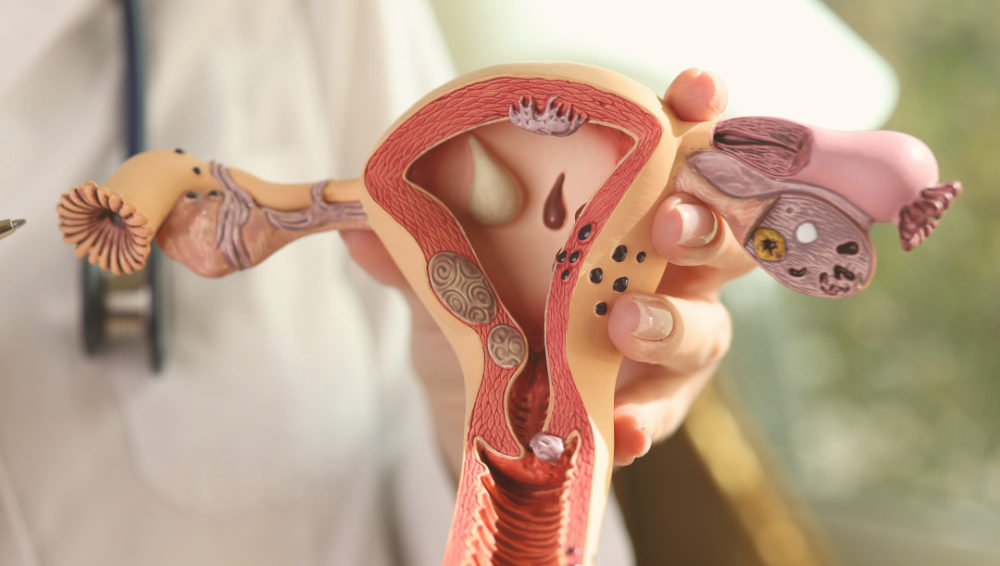PCOS and its effect on a woman’s health & fertility
Polycystic Ovary Syndrome, or PCOS, is a common health condition that affects one in ten women trying to get pregnant.

Polycystic Ovary Syndrome, or PCOS, is a common health condition that affects one in ten women trying to get pregnant.
What is PCOS?
Polycystic Ovary Syndrome is a hormonal disorder that typically affects 1 in 10 women during their reproductive years, between puberty and menopause. ‘Polycystic’ means ‘many cysts,’ and it refers to the many small, fluid-filled sacs or ‘follicles’ that can develop in your ovaries if you have this condition. These are not harmful in themselves, but they can interfere with your hormonal balance and regular ovulation — the release of eggs.
How PCOS affects the ovaries
In women with PCOS, the ovaries produce too much androgen (a type of hormone), which can interfere with the development and release of eggs. Multiple follicles may grow but the eggs don’t mature enough to trigger ovulation. Instead of being released during ovulation, they may remain in the ovaries and later appear as cysts.
Symptoms of PCOS
The symptoms of PCOS can vary greatly from one woman to another, and some may not experience any symptoms at all. Common symptoms include:
- Irregular periods: This is the most common symptom and is caused by lack of ovulation, leading to irregular menstrual cycles
- Heavy bleeding: When you do have a period, it might be heavier than normal
- Excess androgen: High levels of androgen, a male hormone that females also produce, may result in physical signs such as excess facial and body hair (hirsutism), severe acne, hair fall, and occasionally, male-pattern baldness
- Polycystic ovaries: Your ovaries may be enlarged and contain follicles that surround the eggs, leading to the “polycystic” appearance
- Weight gain or difficulty losing weight: Many women with PCOS struggle with weight issues, even though it’s not clear whether PCOS causes weight gain or whether weight gain contributes to PCOS
Signs that you might have PCOS
In addition to the symptoms listed above, here are the telltale signs that you might have PCOS:
- Acne, Oily Skin, or Dandruff: These can be a result of the higher levels of androgens associated with PCOS
- Darkening of the Skin: Some women with PCOS have patches of dark, velvety skin in body creases and folds, such as the neck, groin, and under the breasts
- Headaches: Hormonal changes can trigger headaches in some women with PCOS
- Trouble Sleeping: Problems like insomnia or sleep apnea can occur with PCOS
It’s important to note that having one or more of these symptoms doesn’t necessarily mean you have PCOS. Other conditions like thyroid disease can cause similar symptoms. If you’re experiencing any of these signs, it’s important to speak to a healthcare provider who can help determine the cause and best treatment options.
Causes of PCOS
The exact causes of PCOS are not fully understood, but it’s thought to be related to several factors, including:
- Insulin resistance: About 70% of women with PCOS have insulin resistance, meaning their cells are less able to use insulin. As a result, the body thinks there is insufficiency and increases insulin production, which may also increase androgen levels
- Heredity: If your mother or sister has PCOS, you might have a higher chance of having it too. In other words, there is a genetic predeposition
- Inflammation: Women with PCOS often have increased levels of inflammation, which can also cause higher androgen levels
- Hormonal imbalance: Elevated levels of androgens can disrupt the normal menstrual cycle, cause acne and hirsutism, and affect fertility
Treatments for PCOS
There is no cure for PCOS, but the symptoms can be managed to treat infertility, hirsutism, acne, or obesity. Here are some common treatments:
- Lifestyle changes: Regular exercise, a healthy diet, weight control, and quitting smoking are crucial for managing PCOS
- Medication: Your doctor might prescribe medication to help with hormone balance, menstruation regulation, and acne. For women trying to get pregnant, fertility drugs might be prescribed
- Surgery: In some cases, a surgical procedure called ovarian drilling is performed to help stimulate ovulation
Prevention of PCOS
While there’s no sure way to prevent PCOS, maintaining a healthy lifestyle can help reduce the risk. Regular exercise and a balanced diet can help you manage your weight and regulate your blood sugar levels, potentially reducing your risk of insulin resistance and the associated increase in androgen levels.
Remember, every woman’s experience with PCOS is different. Talk to your doctor or a fertility clinic to learn more about the condition and what to do about it in case you have PCOS.
Verified:
Dr. Sirichet Anekpornwattana (Fertility doctor) (1 June 2023)



